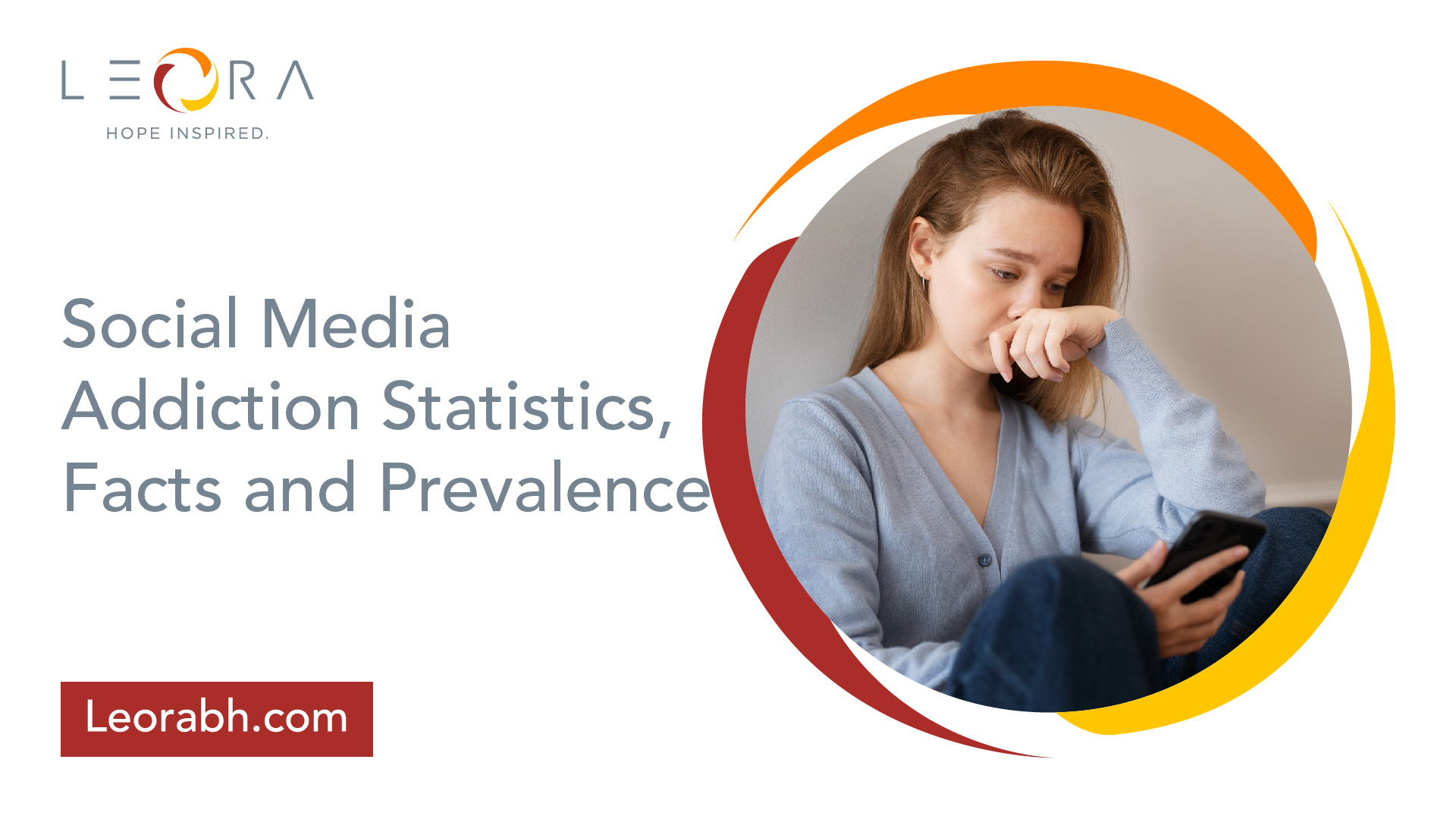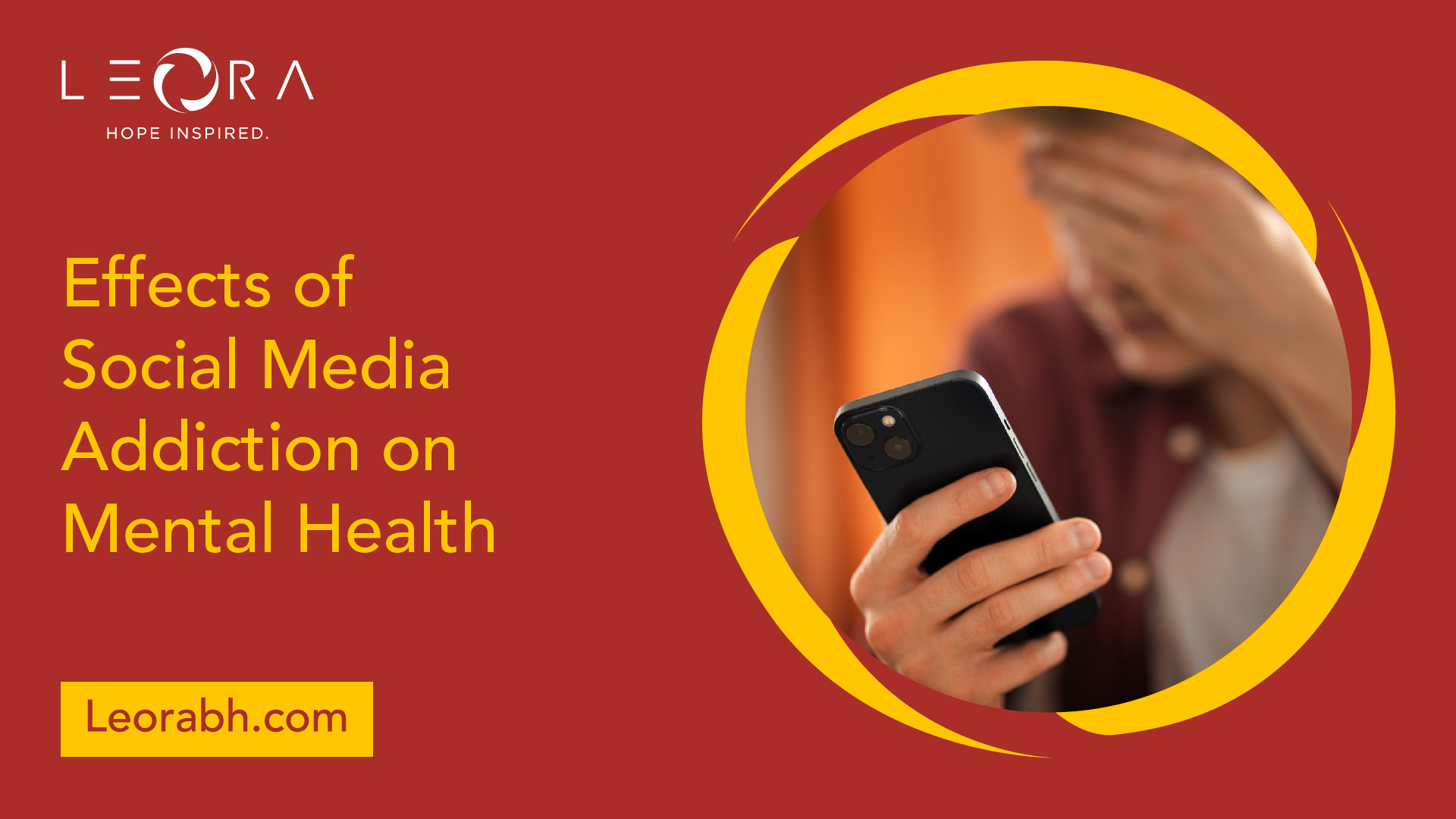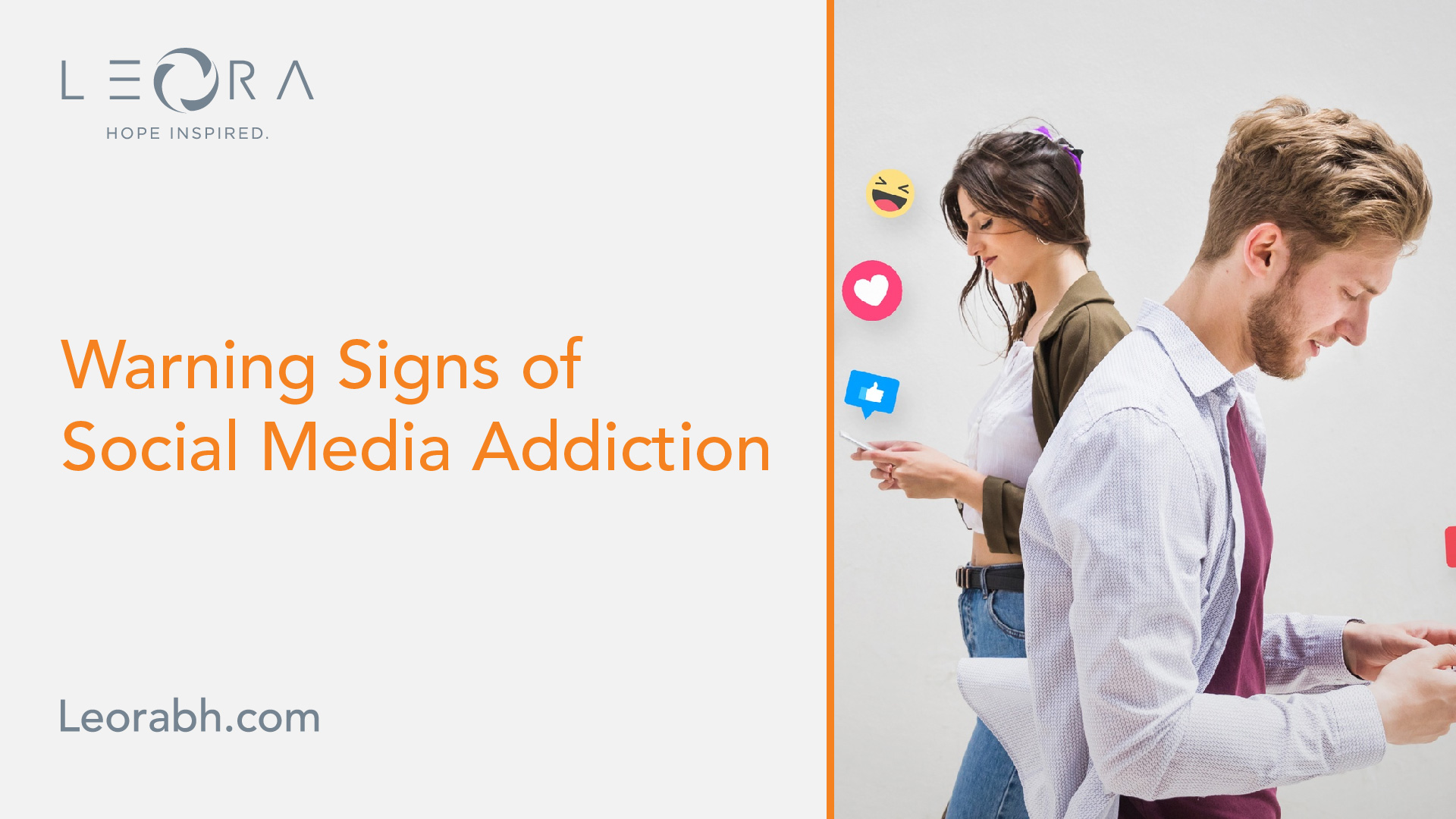Social Media Addiction Statistics, Facts and Prevalence
Disturbing social media addiction statistics revealed! Learn the impact on mental health, relationships, and productivity.

The Rise of Social Media Addiction
Introduction to Social Media Addiction
In today's digital age, social media has become an integral part of our lives. While it offers numerous benefits, such as connecting with friends and accessing information, there is a darker side to excessive social media use. Social media addiction is a growing concern that affects individuals of all ages and backgrounds.
Social media addiction refers to the compulsive and excessive use of social media platforms, leading to negative consequences in various aspects of life. It is characterized by an overwhelming urge to constantly check and engage with social media, often at the expense of other responsibilities and relationships. Understanding the impact of social media addiction can shed light on the seriousness of this issue.
Statistics on Social Media Addiction
- Over 3 billion people worldwide use social media, which equates to about 45% of the global population. (Hootsuite)
- The average person spends 2 hours and 24 minutes on social media every day. (GlobalWebIndex)
- 53% of Americans who use social media say that they feel anxious if they can't access their accounts. (Statista)
- Social media users are 30% more likely to experience symptoms of depression and anxiety than non-users. (American Journal of Preventive Medicine)
- 71% of people sleep with or next to their smartphones, and 35% check their phone within five minutes of waking up in the morning. (BankMyCell)
- Social media is associated with a decrease in self-esteem, life satisfaction, and overall well-being. (Journal of Social and Clinical Psychology)
- The average person checks their phone 58 times a day, and spends an average of 4 hours and 30 minutes on their phone per day. (RescueTime)
- Social media addiction has been linked to poor academic performance, with students who spend more time on social media having lower GPAs than those who spend less time on it. (Computers in Human Behavior)
- Social media addiction has been shown to negatively impact relationships, with those who spend more time on social media reporting lower levels of relationship satisfaction and intimacy. (Journal of Social and Personal Relationships)
- The number of internet addiction treatment centers in the US has increased by 300% in the last decade, with social media addiction being a major focus of treatment programs. (Psychology Today)
Understanding the Impact of Social Media
Social media has revolutionized communication, but its uncontrolled use can harm mental health, productivity, and relationships. Cyberbullying, peer comparisons, and exposure to curated content can cause anxiety, depression, and low self-esteem. Excessive use is linked to stress, loneliness, and social isolation, and can lead to distorted perceptions of reality. This negatively impacts mental well-being and productivity, and personal interactions may suffer. Statistical data is crucial in addressing social media addiction.
Prevalence of Social Media Addiction
The addictive nature of social media is evident in the statistics:
- 79% of adults use social media
- 72% of adults use social media daily
- 81% of teenagers use social media
- 91% of teenagers use social media daily
- 52% of adults check social media at least once per hour
- 72% of teenagers check social media at least once per hour
These statistics shed light on the high usage of social media among both adults and teenagers. It's clear that social media has become an integral part of our daily lives, with a significant portion of users checking it at least once per hour.
These statistics highlight the widespread use of social media and the potential for addiction among both adults and teenagers.

Effects of Social Media Addiction on Mental Health
Social media addiction can have adverse effects on mental health. Here are some staggering statistics that shed light on the impact of social media on mental health:
- 71% of people report feeling anxious or lonely when unable to access social media
- 56% of people experience (Fear of Missing Out) due to social media use
- 37% of people have experienced cyberbullying on social media
- 34% of people have experienced depression symptoms due to social media use
- 63% of people report decreased self-esteem due to social media comparison
These numbers are a wake-up call for all of us to be more mindful of our social media usage and its potential effects on our mental health.%
These statistics demonstrate the potential negative impact of social media addiction on mental health.
Impact on Productivity and Relationships
Social media addiction can also have significant consequences on productivity and relationships:
- 60% of employees admit to using social media for personal reasons during work hours.
- 45% of people have lost sleep due to late-night social media use.
- 40% of people have chosen social media over real-life conversations.
- 34% of people have experienced relationship problems due to social media use.
- 27% of people have neglected household chores due to social media addiction.
These statistics illustrate the potential negative impact of social media addiction on productivity and relationships.
Understanding the prevalence and consequences of social media addiction is crucial in addressing and combating this issue. By being aware of these statistics, individuals can take steps to develop a healthier relationship with social media and prioritize their mental well-being, productivity, and relationships.
Factors Contributing to Social Media Addiction
Social media addiction is a complex phenomenon influenced by various factors. Understanding these contributing factors can shed light on the reasons behind the prevalence of social media addiction. The main factors that contribute to social media addiction are psychological factors, social factors, and technological factors.
Psychological Factors
Psychological factors play a significant role in the development and perpetuation of social media addiction. Some of the key psychological factors include:
- Reward System: Social media platforms are designed to trigger the brain's reward system, releasing dopamine when users receive likes, comments, or notifications. The desire for these rewards can lead to addictive behaviors and compulsive social media use.
- Escapism: Social media platforms often provide an escape from reality, allowing individuals to create an idealized version of themselves or immerse themselves in the lives of others. This escapism can be particularly appealing to individuals experiencing stress, loneliness, or dissatisfaction in their offline lives.
- Fear of Missing Out: The fear of missing out on social events or important information can drive individuals to constantly check their social media feeds. The fear of being left out can contribute to an addictive need to stay connected and up-to-date.
Social Factors
Social factors also play a significant role in social media addiction. These factors include:
- Social Validation: Social media platforms create an environment where individuals seek validation and approval from others through likes, comments, and followers. The desire for social validation can lead to addictive behaviors as individuals constantly seek external validation for their self-worth.
- Peer Pressure: The influence of peers and social circles can contribute to social media addiction. Seeing friends and acquaintances engaging heavily with social media can normalize excessive use and create a sense of pressure to conform.
- Comparison: Social media often presents an idealized and curated version of people's lives. Constant exposure to these highlight reels can lead to feelings of inadequacy and a desire to constantly compare oneself to others, fueling the addictive need to engage with social media.
Technological Factors
Technological factors related to social media platforms can also contribute to addiction. These factors include:
- Design and User Experience: Social media platforms are designed to be highly engaging and addictive. Features such as infinite scrolling, push notifications, and autoplaying videos are intentionally incorporated to keep users hooked and encourage prolonged usage.
- Accessibility and Convenience: The widespread availability of smartphones and internet connectivity has made social media easily accessible at any time and place. The convenience of accessing social media on-the-go contributes to the addictive nature of these platforms.
Understanding the psychological, social, and technological factors that contribute to social media addiction is essential in addressing and managing this issue. By recognizing these factors, individuals can take proactive steps to develop healthier relationships with social media and maintain a balanced approach to their online activities.

Warning Signs of Social Media Addiction
As social media continues to dominate our lives, it's essential to be aware of the warning signs that indicate a potential addiction. While social media can be a valuable tool for communication and connection, excessive usage can have detrimental effects on mental health, relationships, and productivity. Here are some warning signs to watch out for:
Excessive Time Spent on Social Media
One of the prominent warning signs of social media addiction is spending an excessive amount of time on these platforms. If you find yourself constantly scrolling through social media feeds, losing track of time, and neglecting other important activities, it may be a sign of addiction.
According to recent social media addiction statistics, the average American spends over 2 hours per day on social media platforms. Excessive time spent on social media can lead to decreased productivity, lack of focus, and neglect of real-life responsibilities.
Neglecting Responsibilities and Relationships
Another warning sign of social media addiction is neglecting responsibilities and relationships in favor of spending time on social media. If you consistently prioritize social media over work, school, household chores, or personal relationships, it may be an indication of addiction.
Research on social media addiction effects has shown that excessive use of social media can lead to a decline in academic or professional performance, strained relationships, and an overall deterioration in the quality of life. It's crucial to strike a balance between online activities and real-life responsibilities.
Withdrawal Symptoms and Emotional Distress
When attempting to reduce or discontinue social media use, individuals with addiction may experience withdrawal symptoms and emotional distress. These symptoms can include anxiety, irritability, restlessness, and a strong urge to check social media platforms.
Studies on social media addiction research have demonstrated that individuals who are addicted to social media often experience negative emotions when unable to access or use these platforms. This emotional distress can further reinforce the addictive behavior, making it challenging to break free from the cycle.
Recognizing these warning signs is the first step towards addressing social media addiction. If you or someone you know is exhibiting these signs, it's important to seek support and consider implementing strategies to regain control over social media usage. In the following section, we will explore coping strategies and solutions for managing social media addiction, including setting boundaries, developing healthy digital habits, and, in some cases, seeking professional help.
Coping Strategies and Solutions
Recognizing the detrimental effects of social media addiction, it is essential to implement coping strategies and solutions to regain control over one's digital habits. Here are some effective approaches that can help individuals break free from the grip of social media addiction.
Setting Boundaries with Social Media
One of the key coping strategies for combating social media addiction is setting clear boundaries. Establishing limitations on the time spent on social media platforms can help regain control over one's usage. Consider implementing the following strategies:
- Time Limit: Set a specific time limit for social media usage each day. This could involve allocating a specific time slot for social media activities or using apps that track and limit screen time.
- No Social Media Zones: Designate certain areas, such as the bedroom or workspace, as social media-free zones. This helps create physical boundaries and reduces the temptation to mindlessly scroll.
- Digital Detox: Take periodic breaks from social media by engaging in offline activities. This can be as simple as dedicating a day each week to being social media-free or participating in hobbies that don't involve screens.
By setting boundaries, individuals can regain control over their social media habits and allocate their time and attention to more meaningful activities.
Developing Healthy Digital Habits
Developing healthy digital habits is crucial for overcoming social media addiction. By implementing the following practices, individuals can create a healthier relationship with social media:
- Mindful Usage: Be conscious of the time spent on social media platforms and the purpose behind each session. Prioritize meaningful interactions and avoid mindless scrolling.
- Diversify Activities: Engage in a variety of offline activities to reduce reliance on social media for entertainment and socialization. Explore hobbies, exercise, spend time with loved ones, or pursue personal growth opportunities.
- Practice Self-Care: Prioritize self-care activities that promote well-being, such as meditation, exercise, journaling, or spending time in nature. These activities can help reduce the urge to seek validation or escape through social media.
By fostering healthy digital habits, individuals can find a better balance between their online and offline lives.
Seeking Professional Help
In severe cases of social media addiction, seeking professional help can be beneficial. Mental health professionals, such as therapists or counselors, can provide guidance and support tailored to an individual's specific needs. They can help identify underlying psychological factors contributing to addiction, develop personalized coping strategies, and provide tools for managing social media use effectively. If you or someone you know is struggling with social media addiction, consider reaching out to a professional for assistance.
Remember, breaking free from social media addiction is a journey that requires patience and perseverance. By implementing these coping strategies and seeking support, individuals can regain control over their lives and establish a healthier relationship with social media.
Conclusion
Social media addiction is a growing concern, with millions of people struggling to manage their online habits. Excessive usage can have detrimental effects on mental health, relationships, and productivity. Coping strategies such as setting boundaries, developing healthy digital habits, and seeking professional help can help individuals regain control. It's essential to strike a balance between online activities and real-life responsibilities. By prioritizing our well-being, we can create a more fulfilling life both online and offline.
Sources
Find Your Inner Light
Related Articles
Contact Us
Leora Behavioral Health offers a comprehensive addiction treatment programs to help you get your life back on track.
Our trained professionals will work with you to develop a personalized treatment plan that meets your unique needs. If you or someone you know is struggling with addiction, reach out to Leora Behavioral Health today.


.svg)





.svg)
.svg)
.svg)
.svg)